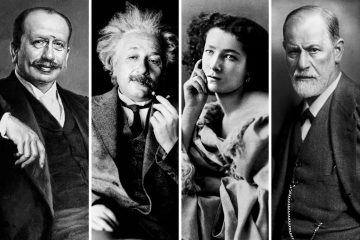Clemence Boulouque in The New York Times:
 Reciting Jewish achievements and Judaism’s contribution to civilization in order to fight anti-Semitic propaganda is a well-established genre that flourished in 19th-century Europe. After reaching the United States in the first part of the 20th century, it arguably culminated in the 1960s with the writings of popular authors like Max Dimont. Norman Lebrecht’s “Genius & Anxiety” belongs to that genre: Both the subtitle of his book and the preface testify to Lebrecht’s commitment to demonstrating “how Jews changed the world” as a response to the current moment, which, he laments, is yet again beset by anti-Semitism.
Reciting Jewish achievements and Judaism’s contribution to civilization in order to fight anti-Semitic propaganda is a well-established genre that flourished in 19th-century Europe. After reaching the United States in the first part of the 20th century, it arguably culminated in the 1960s with the writings of popular authors like Max Dimont. Norman Lebrecht’s “Genius & Anxiety” belongs to that genre: Both the subtitle of his book and the preface testify to Lebrecht’s commitment to demonstrating “how Jews changed the world” as a response to the current moment, which, he laments, is yet again beset by anti-Semitism.
Spanning a century, between 1847 (the death of Felix Mendelssohn) and 1947 (the United Nations’ vote in favor of the creation of the State of Israel), the book features dozens of remarkable scientists, artists and politicians of Jewish descent. Lebrecht’s wide net captures the usual suspects — Marx, Freud, Kafka, Einstein — but also many lesser-known, and equally fascinating, individuals, like Karl Landsteiner, the father of blood types; Albert Ballin, the shipping industry magnate who changed trans-Atlantic journeys and migration patterns; and Eliza Davis, an acquaintance of Dickens who harassed him until he amended “Oliver Twist,” doing away with negative Jewish references in the book’s later editions. Some of Lebrecht’s transitions from one vignette to the next flow particularly well: His account of the revival of ancient Hebrew under the auspices of Eliezer Ben-Yehuda, meant to foster a Jewish national consciousness, is aptly followed and contrasted by the depiction of the near-simultaneous creation of Esperanto by the Polish idealist Eliezer Ludwig Zamenhof, who strove to create a universal idiom that would encourage greater understanding among peoples.
More here.
